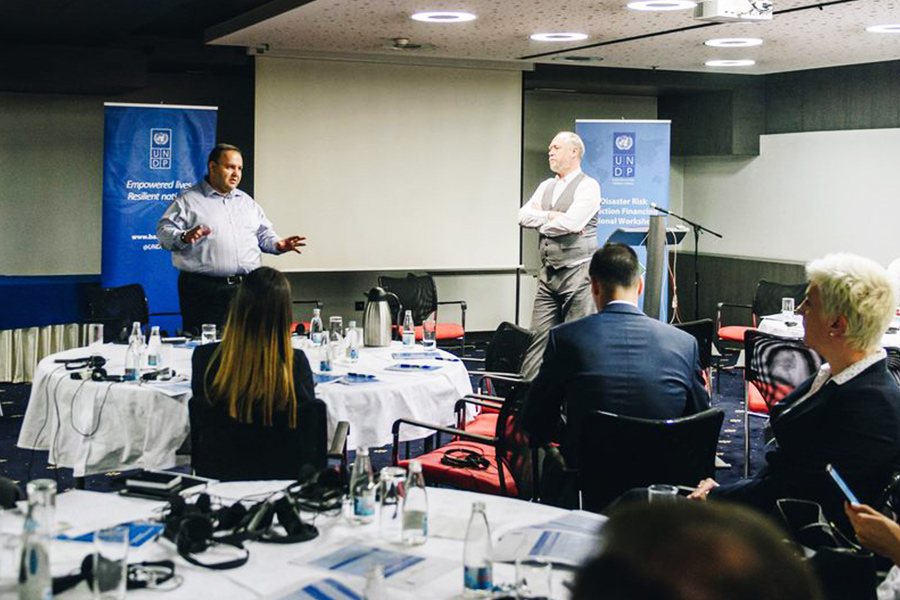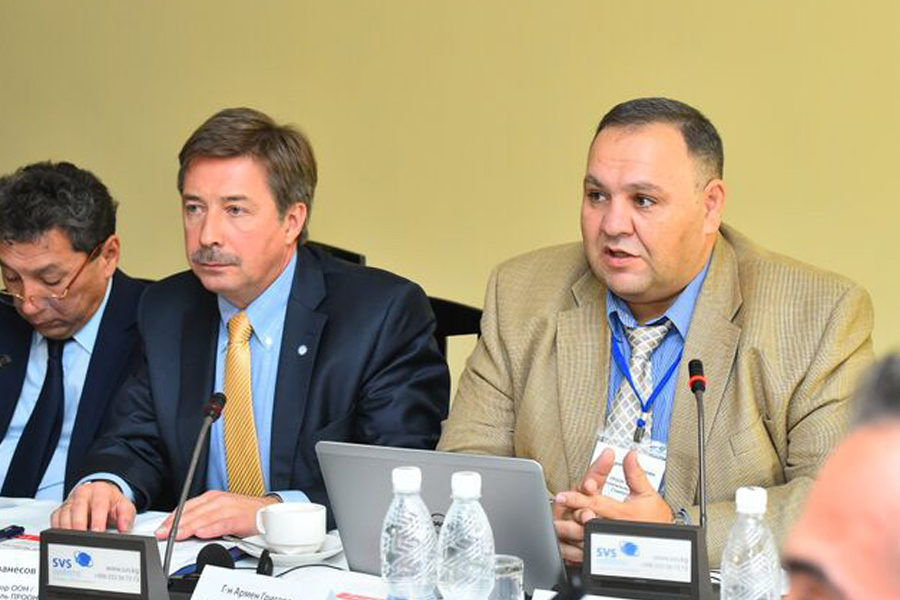For Armen Grigoryan, involving UN Volunteers in development efforts to address crisis, emergency, and environment challenges is a given. Armen is the Regional Cluster Leader on Climate Change and Disaster Resilience and Global Energy Policy Advisor at the Istanbul Regional Hub of the United Nations Development Programme (UNDP). He started his career as UN Volunteer in Armenia. For the 50th anniversary of UNV, we interviewed Armen, who shares his experience and a helicopter view of environmental projects in Europe and the CIS.
Then and now, why UN Volunteers?
The UN Volunteers (UNV) programme offers a win-win solution. First, volunteer professionals enrich UN projects with an innovative vibe. Second, whether they move forward in the UN system or not, UN Volunteers gain experience that will help in any new beginning. Dare to challenge yourselves: volunteer. UNDP/UNV is a great place to be.
How did your UN Volunteer journey start?
In 1997, I started as a Programme Officer in Armenia for the regional Disaster Management Training Programme (DMPT). However, my volunteering experience started in 1988, when I went as a volunteer to regions affected by the devastating earthquake of 1988 in Armenia.
What were your achievements through your UNV assignment?
I helped to develop the regional programme on a national level. Our team strengthened the national capacities for disaster management in cooperation with counterparts in neighbouring countries (Azerbaijan and Georgia). I also facilitated a DMPT regional workshop with the participation of UNDP, three national governments, national Red Cross/Red Crescent Societies, academia and the non-governmental sector.
How do you feel about that experience?
Volunteering was a great learning adventure. While raising awareness of decision-makers and the general population, I also learnt how much there is still to do to develop local, national and regional strategies to address disaster risks and to make sure such initiatives are properly funded.
How did your volunteering experience shape your decision to continue working in disaster management?
As a volunteer, I went to the earthquake-affected regions of Armenia in December 1988. Emotionally it was a big shock to see such major destruction and so much loss of lives. I was part of a university group; we spent three days and two nights in the disaster zone until professional rescue services arrived.
First to come were rescuers from Georgia and France. I realized that without special training, knowledge and tools, as well as being not self-sustainable in terms of water, food, medication and sleep facilities, we became a burden. Therefore, we decided to use our knowledge somewhere else and went to the hospitals to translate for arriving groups of international doctors.
The Armenian earthquake was the first disaster during which the Soviet Union opened its borders for international help. The United Nations established its Disaster Assessment and Coordination (UNDAC) system based on the experience from the Armenian earthquake, and I am a proud member of UNDAC team till now.

How can UNV solutions bolster environment initiatives in Europe and the CIS?
The changing climate is posing new challenges. UNV is also changing the modalities through which it can offer support and expertise from volunteers around the globe.
In our region, it is important to involve UN Volunteers in the longer-term initiatives, not only in short projects. Climate change and the environment domain in general will increasingly require a portfolio approach and systemic thinking in the longer term.
Why are UN Volunteers beneficial for these projects?
UN Volunteers offer junior professional level combined with higher flexibility, wide geographic representation, diverse backgrounds, and are particularly good for crisis/emergency work, because they are quickly available and flexible.
Recently, I came across UNV's Online Volunteering platform, which, I believe, is a great tool, especially due to COVID-19. As teleworking will most probably stay around for quite some time, distance support by volunteers is also extremely valuable and important.
How can UN Volunteers learn about regional environmental projects?
UN Volunteers can find most of the information on our regional environmental projects on eurasia.undp.org. There are various national and sub-regional environmental initiatives that are managed by UNDP country offices in the region, with our technical support.

Where did your career path take you after your volunteer experience?
After serving as a UN Volunteer, I continued with DMTP as a Project Coordinator and have been working since then in different countries and regions, and in different capacities and functions, but always covering disaster management and disaster risk reduction.
I have been doing this since 1997 and am still very excited about it. With the changing climate there are more challenges, extreme weather events and disasters that we need to anticipate and attend to. Currently, I lead the regional Disaster and Climate team of UNDP for Europe and Central Asia.

